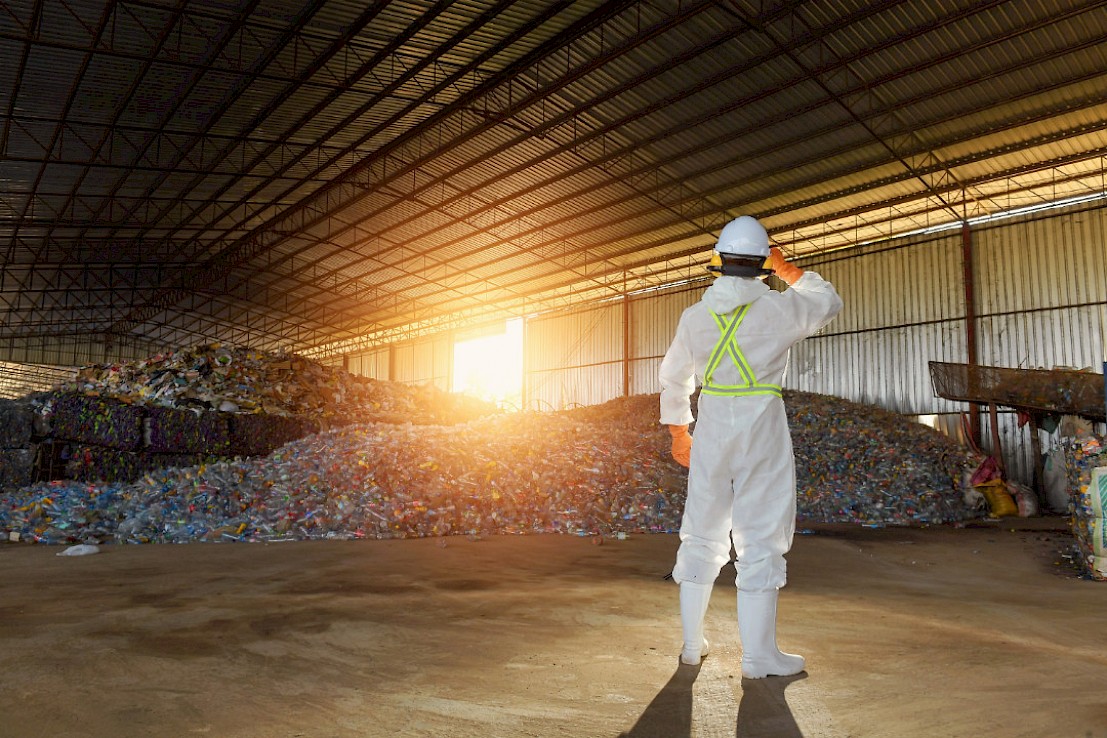Or what should we be doing with our end-of-life materials?

We use a lot of stuff, and then throw it away so that it becomes someone else’s problem. What happens to our rubbish? How much of it could have a second life as something useful? How does this fit with the need to make money? But the bottom line is that we need to become more frugal with the earth’s resources, and end-of-life materials have a big part to play. In jargon, we need to move from a linear material usage model to a circular economy.
The answers are very variable depending on the type of material and what has been done to it to make the products that we use. Recycling is part of the picture, but it may not be the only solution and may not be the best approach in some cases. How does it stack up in environmental and economic terms? We will explore different approaches to closing the materials usage loop particularly for metals and plastics and consider what optimal practices might look like.
Dr. Claire Barlow, Institute for Manufacturing, University of Cambridge

Claire Barlow read Materials Science at Cambridge University before joining the Engineering Department where she is now Emeritus FacuIty. She is Fellow Emerita at Newnham College. Her main research interest is in environmental aspects of production, use and disposal of engineering materials, with a focus on mechanical and physical properties of recycled materials. She has worked on technical projects developing end-of-life treatments for a range of materials including natural materials, paper and aluminium. The problems of managing waste materials are integrally connected with wider industrial, social and political issues, and her work includes studies of waste management in international settings.
Attending lectures
The lecture will be preceded by a short presentation from a CSAR PhD Award Winner.
Volcanic Imaginaries: Between Indigeneity and Risk Across the Chile – Argentina Border
Carolyn Smith, University of Cambridge, Department of Geography, Wolfson College
We live in an age increasingly characterised by disasters, yet despite rapid advances in science and technology, there remains a significant gap between risk reduction discourse and its efficacy in practice. The talk presents findings from an ethnographic study, centred on Copahue volcano and the Indigenous communities who live-with persistent volcanism. Current approaches to mitigate volcanic risk are a source of significant community-state conflict and have fostered deeply entrenched, mutual distrust. The research positions rhythm as a bridging concept between abstracted and embodied ways of knowing and being in the territory – to understand how they come together, why they come into conflict and how to bring them into conversation. The doctoral project received a CSAR student award for the methodology, which applied the research findings through the creative co-production of a children’s storybook, co-authored with a community elder, illustrated by local school children and called Bailamos a los ritmos de Ñuke Mapu [We Dance to the Rhythms of Mother Nature]. The book weaves together scientific, tacit and ancestral knowledge, serving as a research method, dissemination strategy and means to not only analyse but engage with the entangled power differentials which underpin the current conditions for disaster.
Carolyn is an architect by training and an interdisciplinary researcher, writer and designer by trade. She is currently completing her PhD in the Department Geography, at the University of Cambridge. Her work has always engaged with the links between collective identities, the material world, environmental change and social justice. Carolyn has applied her talent for creative problem solving to research in her current and previous roles in academia and the NGO sector. The practical focus of her architectural foundation – where we cannot necessarily ‘solve’, but we can ‘speak to’ complex conditions – has always drawn Carolyn to investigate how to reframe ‘wicked problems’ to open up new conversations.